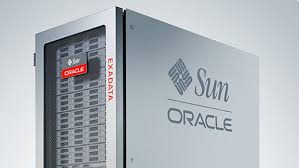This is a great discussion on and around Oracle Exadata by 2 performance tuning experts.
Notes:
A very relaxed presentation on the ins and outs of Exadata from a performance tuning and optimization perspective.Skip to about 10 mins in to get past the introductions.Exadata isn’t a solution to all performance problems. You can still fill up the bigger more powerfull server and you have the same issues that you had when you filled up a smaller box.
There is always faster hardware.
Smartscan.
Most apps do more than the business need requires. Giving more data to the user or carrying more data than is needed through the calulations
Filter earlier to reduce unwanted work.
Pushing that sort of work down to the hardware level makes things much faster.
Big pipe between the storage and the db buffer cache.
Difficult to predict how fast an exadata machine will perform a particular opperation because there are ahost of features that kick in at particular times.
Inconsistency in execution times can vary a lot especially before a system gets up to speed.
Documentation for exadata is not generally available to the public.
This makes learning etc difficult without buying a exadata box.
The machine had incredible performance but you need to set it up properly in order to get the most out of it.
Its much easier to optimize for the new machine at the time that you put the application on there.
Any box is likely to get filled up eventually so you should get the most out of it i.e. optimize each application.
Everything is pre-engineered by Oracle so you don’t have to configure lots of different components. In many ways like Apple where their products just work in the way that they are supposed to do.
Questions of engineered systems vs open systems and if it is a cyclical pattern.
Engineered system is low down on the list of benefits of Exadata.
The storage software is one of the biggest.
The project and knowledge required to set up your own system is often not viewed favorably within an organization where as Exadata is pre set up to give you exactly what you need to run an Oracle system.
Main changes that could be made is increased transparency because Exadata works very well but letting more people gain exposure to it and find out exactly how everything works would let them get the most out of it.
There are advantage’s to having a single vendor stack because support has to come from them and there can be no finger pointing.
Apps built to run on multiple dbs tend not to work very well anyway so you are locked in to an extent regardless.

